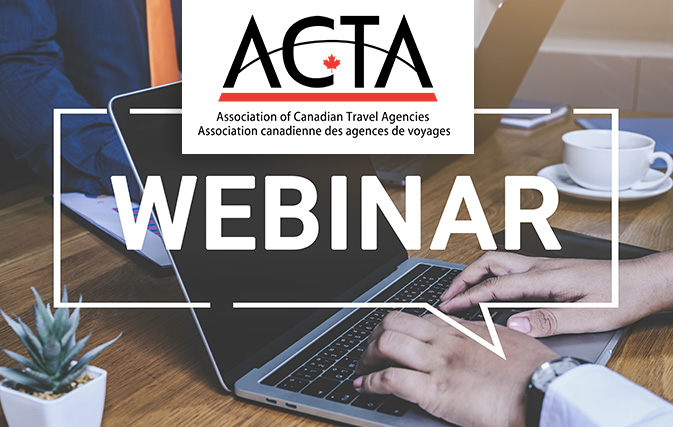TORONTO — With the pandemic and its fallout, some agents are taking a close look at the retail travel industry and assessing the business model that best fits their needs.
For some, that could lead to going home-based, which typically means signing up with a host agency.
Host agencies across Canada have reported a sharp uptick in the number of inquiries they’re getting from agents looking to switch to home-based.
After months of working from home amid the COVID-19 crisis, some agents may see going home-based as a natural transition.
But while home-based has its advantages, agents – especially those used to being company employees – also realize they need to be aware of the realities of becoming an independent contractor (IC).
An ACTA webinar, ‘Independent Contractors 101’, gave an overview of IC work, from worker definitions to payment considerations.
Presented by frequent ACTA webinar partner HR a la carte, and hosted by ACTA’s Maggie Santos, the webinar didn’t provide much in terms of travel industry specifics, but it did offer some helpful checklists and questions to ask for anyone thinking of becoming an independent contractor.
In a broad HR definition, employees devote their full time and attention to their employer and can’t have side businesses or work elsewhere. They’re given everything they need to do their job, and they must do the work themselves and can’t sub-contract it out.
An IC on the other hand can run their own business and can accept or refuse work. They’re also on the hook to furnish themselves with the workspace and equipment they need to do their work. They can also design their own working arrangements, hire their own employees and control the way they provide services.
And when it comes to protections under each province’s Employment Standards Act, employees are entitled to statutory benefits and protections as per the province, as well as minimum wage, overtime pay, notice of termination, severance pay and so on. ICs on the other hand have no entitlement to provincial Employment Standards Act benefits and protections.
When it comes to contractual questions, both sides should be asking …
- Is there a written agreement for services to be performed and who provides it?
- Who sets the work conditions?
- Who decides when the relationship should be terminated?
- Can the IC work for others?
- Is the IC entitled to contribute to benefit plans, or entitled to sick leave or vacation time with pay?
The webinar also looked at payment considerations.
While employees get paid wages with payroll deductions for everything from CPP to EI – and usually that wage is steady regardless of the profitability of the business – ICs have a more independent model, and at the same time, assume more risk in a bad year.
HR a la carte presenter Brooke Wilkinson also looked at a case law example that highlighted the complexities of determining exclusivity when relations between a company and an IC go sour, which can find both parties in court.
To minimize risk, she says, any company with ICs should always review existing relationships and worker contract, especially in situations where an employee has asked to become an IC, or vice versa. “Seek legal or HR advice,” she says, adding that it’s the “reality of the relationship that determines the classification (eg. employee or IC), regardless of what is written in a contract.”


